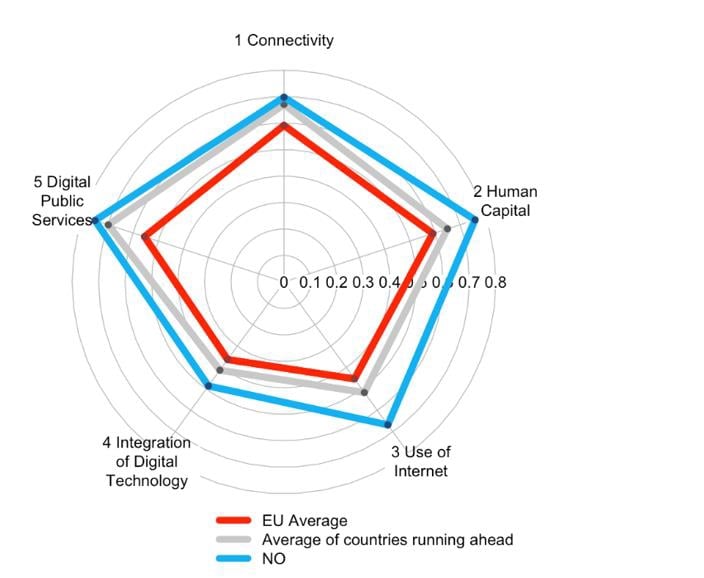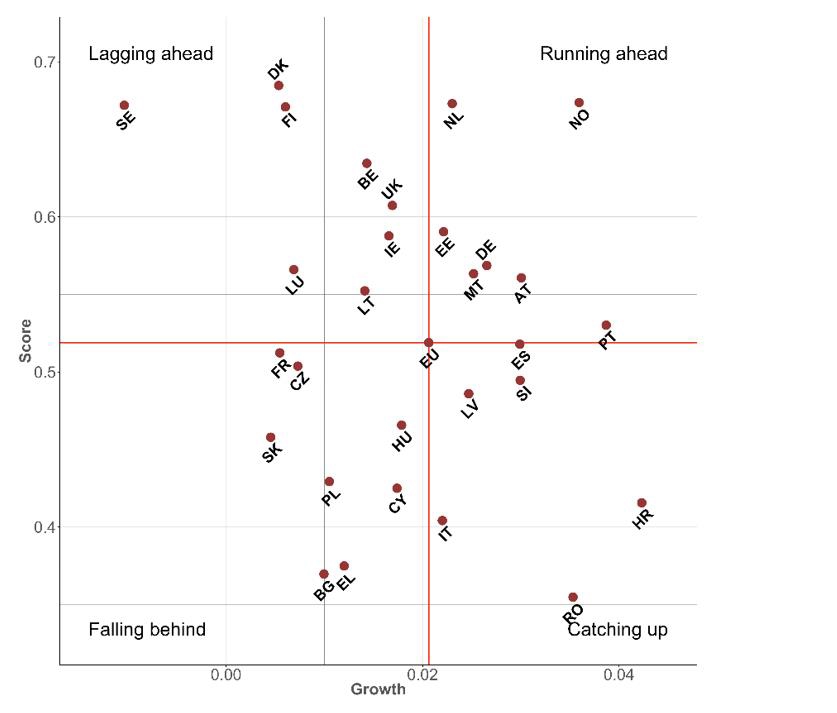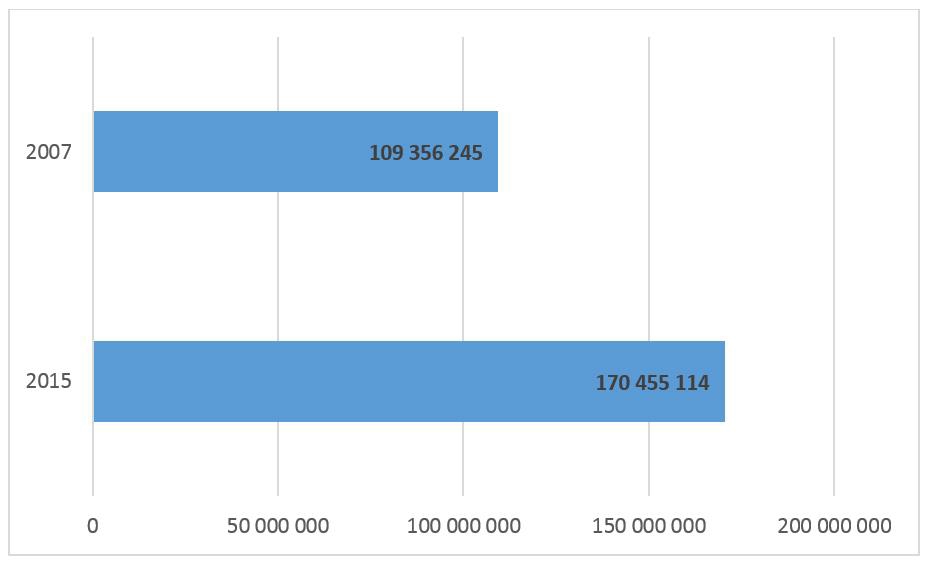6 International comparisons
Norway generally scores high in international rankings of ICT development. Nonetheless, the rapid pace of development means that we must constantly improve to keep up with the best and to take even more advantage of the potential digitisation offers for increasing productivity.
6.1 EU
EU's Digital Economy and Society Index (DESI) is an index that measures European countries digital development level. The index consists of indicators along five dimensions (Figure 4.8):
- Connectivity
- Human capital
- Use of internet
- Integration of digital technology
- Digital public services
Based on the results of these indicators, countries are divided into four groups (Figure 4.9): falling behind; catching up; lagging ahead; and running ahead. Norway is in the group 'running ahead' along with the Netherlands, Estonia, Germany, Malta, Austria and Portugal. The countries in this group scored above the EU average and have developed faster than the EU average over the past year. Norway scores well above the EU average on all five dimensions. Norway also scores above the average score for the countries in the group 'running ahead' on all dimensions. Compared with the 28 EU countries, Norway ranks number 2 overall after Denmark. On the indicator for growth last year, Norway ranked number 3 after Portugal and Hungary.

Figur 6.1 Figure 4.8 Norway’s ranking along the five dimensions in the DESI index for 2016.
Kilde: Source: European Commission. 2016.

Figur 6.2 Figure 4.9 Norway’s ranking in the DESI index for 2016, given overall score and growth rate.
Kilde: Source: European Commission. 2016.
The EU's Digital Agenda Scoreboard shows that 88.7 per cent of Norway's citizens (aged between 16 and 74) were frequent internet users in 2015, while the EU average was 67.4 per cent. A total of 81.3 per cent of Norway's citizens interacted with public authorities over the past 12 months, while the EU average was 46.2 per cent of Norway. Furthermore the EU's figures show that in 2015 only 1.46 per cent of Norway's population (aged between 16 and 74) had never used the internet. By comparison, 16.4 per cent of the EU population had never used the internet during the same period.
In the European Commission's eGovernment Benchmark Report18 for 2015, Norway was ranked in the group for technologically mature countries, along with Denmark, Finland, Iceland, the Netherlands and Sweden.
6.2 UN rankings
The UN also conducts international comparisons and countries The United Nations e-Government Survey19 compares the e-government development status of the 193 United Nations member states.
In 2014 Norway ranked number 1320 overall. This represents a decline in the ranking from 2012, when Norway ranked number 8. Norway scores high on digital skills and digital infrastructure in 2014, while the score for digital services was lower. From ranking highest on digital services in 2008, Norway fell to 18th place in 2014. It is for the more advanced services that Norway's public administration scores relatively low.
As shown in Figure 4.10, total operating expenditure allocated in the national budget has risen significantly since 2007. The public sector also invests several billion (NOK) in ICT every year. See also the discussion of expenditure on ICT procurements in the public sector in chapter 12.

Figur 6.3 Figure 4.10 Operating expenditure in the national budget for 2007 and 2015, in NOK.
Kilde: Source: Norwegian Government Agency for Financial Management, adapted by the Ministry of Local Government and Modernisation.
The Productivity Commission (NOU 2016: 3) finds that a strong motivation for many of the countries showing progress is that the financial crisis in 2008 necessitated measures to limit public spending. They have invested in digitisation to help rationalise public services and reduce expenditure in the public sector. Norway's public sector has not had the same motivation. This may offer significant potential which Norway must exploit as it, too, now faces a tighter economic climate.